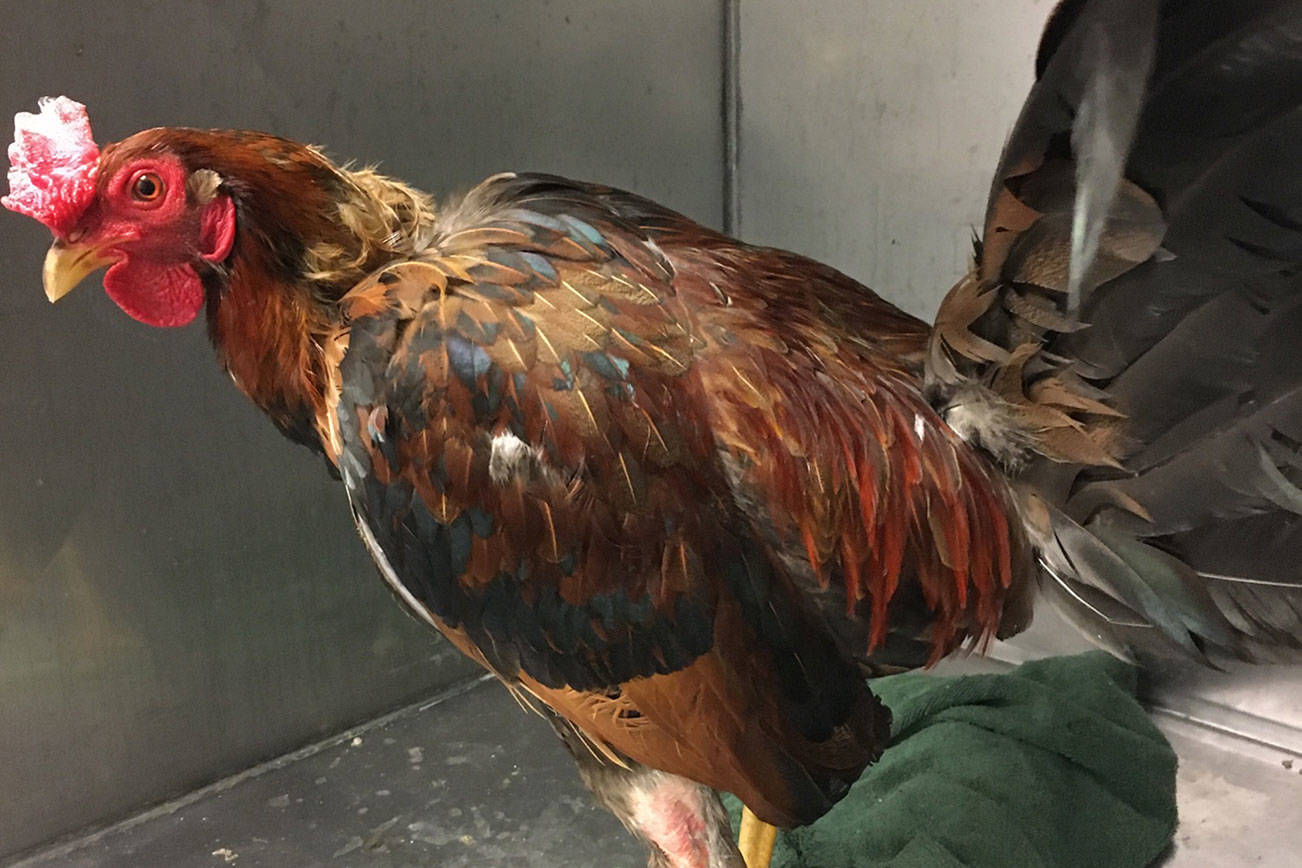A Kent man faces a court date later this month or early next year on a animal fighting charge for allegedly raising roosters for cockfighting.
Christian Vazquez-Lopez, 35, pleaded not guilty in October to the animal fighting charge. He is scheduled to appear in court later this month or early next year at the Maleng Regional Justice Center in Kent when a trial date could be set or attorneys could ask for more time to prepare the case.
King County Animal Control executed a search warrant in May on a property in the 28000 block of 149th Avenue Southeast after responding to complaints in March and April about roosters on the defendant’s property, according to charging documents.
Vazquez-Lopez reportedly had 91 roosters with 48 being altered and 13 being partially altered. He had medications, supplements, training equipment and posters associated and used for cockfighting, according to charging documents. He had a transport box typically used to transport birds to and from fights, which are illegal in the state and where people bet on which cock will win a fight. The box had blood on the walls inside.
If found guilty as charged, Vazquez-Lopez could be sentenced to five years in prison, fined up to $10,000 or both. Under state law (RCW 16.522.117) animal fighting is a class C felony.
Cockfighting is a blood sport in which two roosters specifically bred for aggression are placed beak to beak in a small ring and encouraged to fight to the death, according to King County Animal Control. In organized cockfights, the roosters’ natural fighting instincts are exaggerated through breeding, feeding, training, steroids and vitamins. A bird may undergo several months of training before a fight. Just before a fight, the breeder cuts off the animal’s wattles — the combs below the beak — so that his opponent cannot tear them off.
Once in the ring, roosters often wear knives or artificial gaffs (long, dagger-like attachments) that are sharp enough to puncture a lung, pierce an eye or break bones in order to inflict maximum injury. Fights may be held in buildings, backyards or even basements and can last anywhere from seconds to many minutes. While the rules usually do not require one or both birds to die in order to declare a winner, death is often the outcome due to the severity of injuries.
Animal Control officers removed the roosters from the property.


